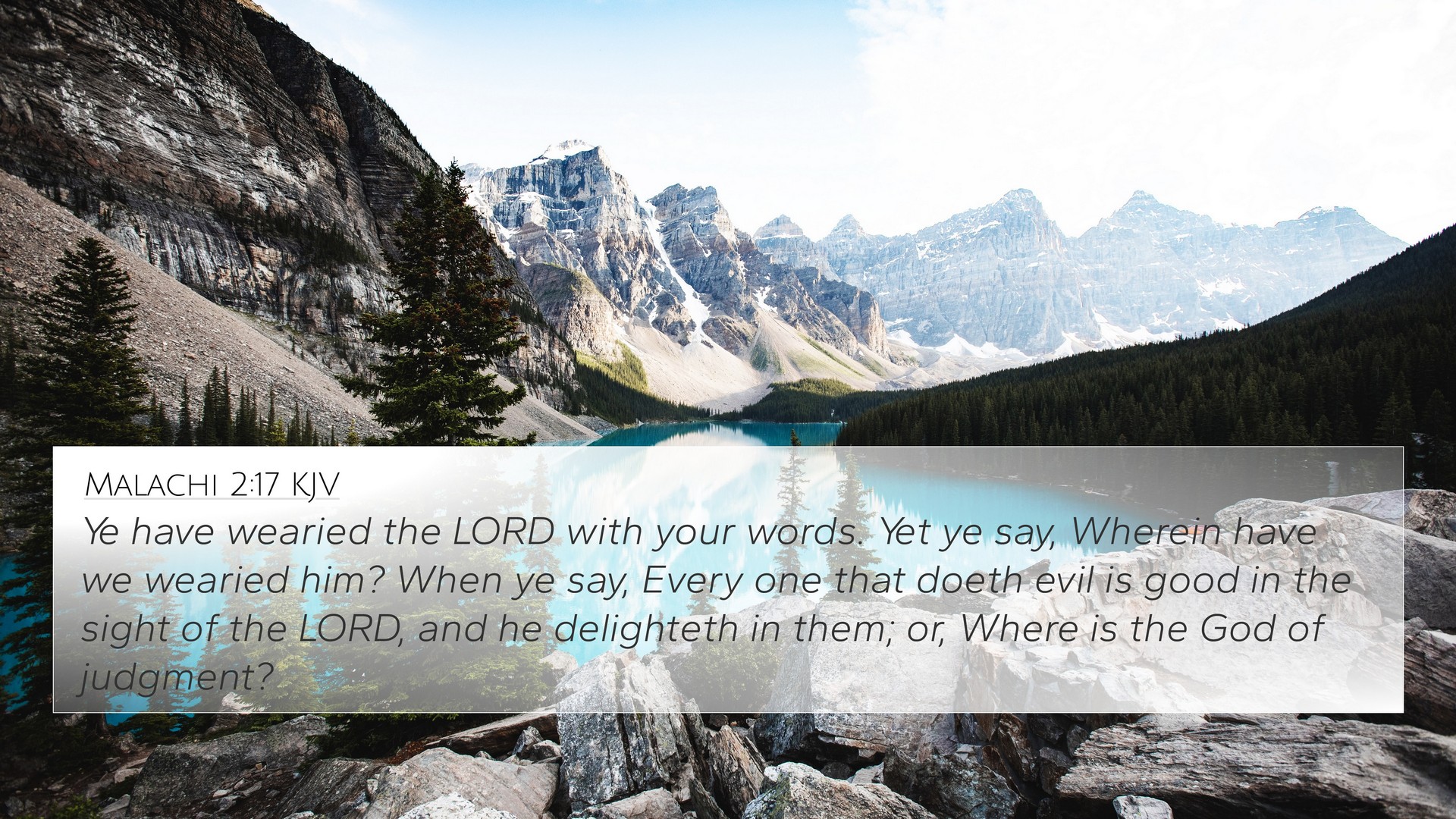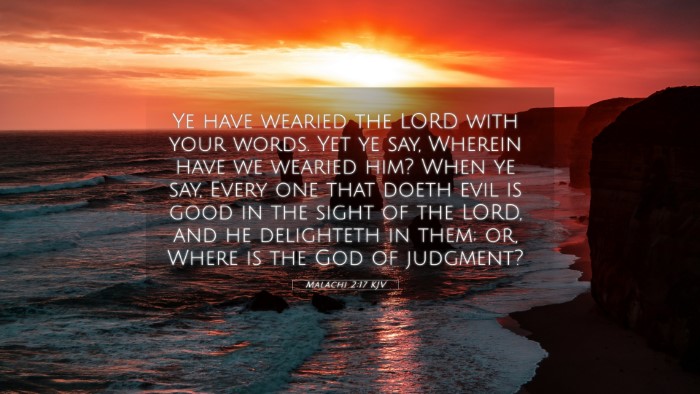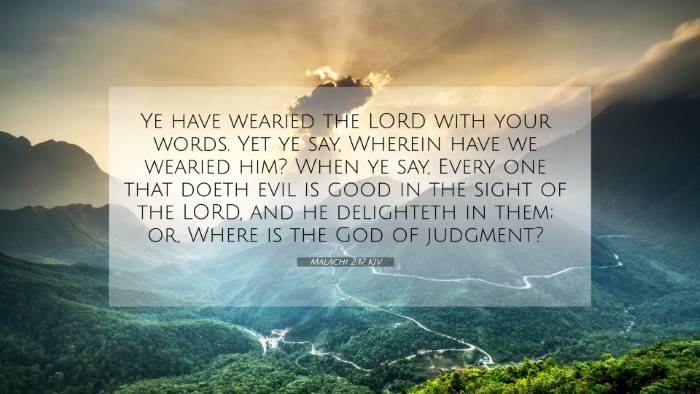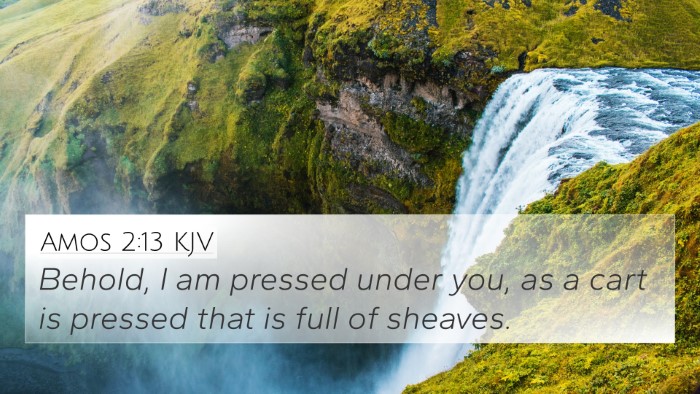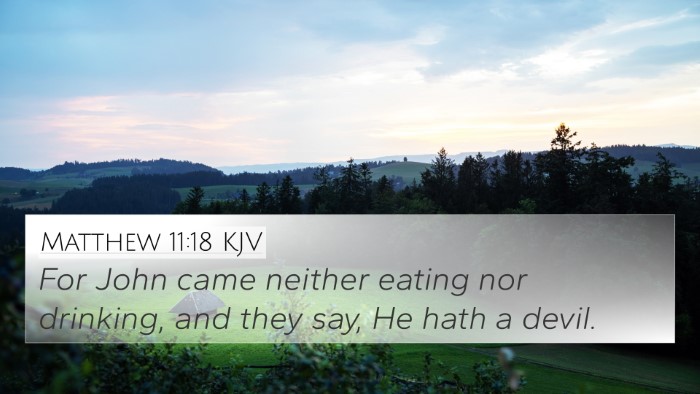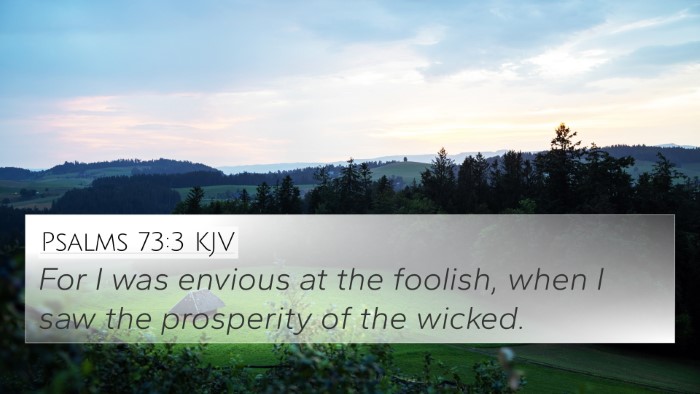Old Testament
Genesis Exodus Leviticus Numbers Deuteronomy Joshua Judges Ruth 1 Samuel 2 Samuel 1 Kings 2 Kings 1 Chronicles 2 Chronicles Ezra Nehemiah Esther Job Psalms Proverbs Ecclesiastes Song of Solomon Isaiah Jeremiah Lamentations Ezekiel Daniel Hosea Joel Amos Obadiah Jonah Micah Nahum Habakkuk Zephaniah Haggai Zechariah MalachiMalachi 2:17 Similar Verses
Malachi 2:17 Cross References
Ye have wearied the LORD with your words. Yet ye say, Wherein have we wearied him? When ye say, Every one that doeth evil is good in the sight of the LORD, and he delighteth in them; or, Where is the God of judgment?
Uncover the Rich Themes and Topics of This Bible Verse
Listed below are the Bible themes associated with Malachi 2:17. We invite you to explore each theme to gain deeper insights into the Scriptures.
Malachi 2:17 Cross Reference Verses
This section features a detailed cross-reference designed to enrich your understanding of the Scriptures. Below, you will find carefully selected verses that echo the themes and teachings related to Malachi 2:17 KJV. Click on any image to explore detailed analyses of related Bible verses and uncover deeper theological insights.
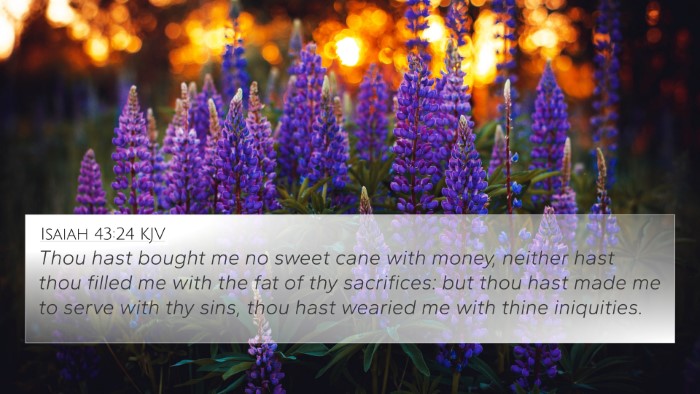
Isaiah 43:24 (KJV) »
Thou hast bought me no sweet cane with money, neither hast thou filled me with the fat of thy sacrifices: but thou hast made me to serve with thy sins, thou hast wearied me with thine iniquities.
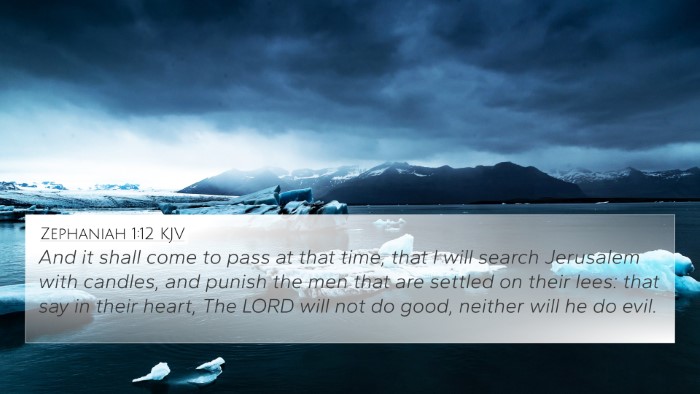
Zephaniah 1:12 (KJV) »
And it shall come to pass at that time, that I will search Jerusalem with candles, and punish the men that are settled on their lees: that say in their heart, The LORD will not do good, neither will he do evil.
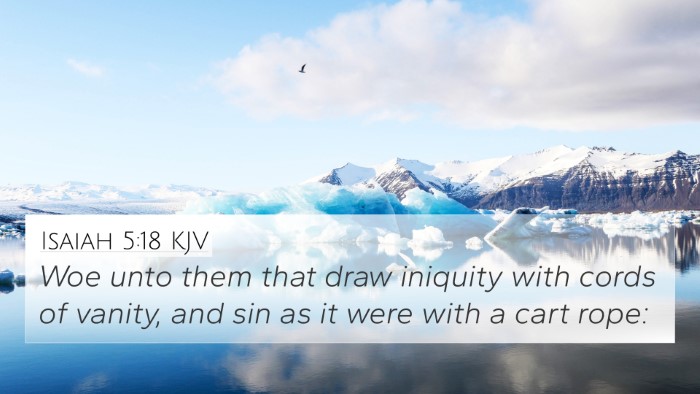
Isaiah 5:18 (KJV) »
Woe unto them that draw iniquity with cords of vanity, and sin as it were with a cart rope:
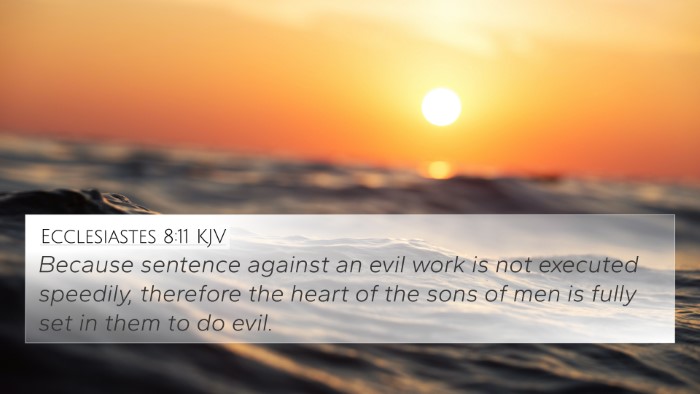
Ecclesiastes 8:11 (KJV) »
Because sentence against an evil work is not executed speedily, therefore the heart of the sons of men is fully set in them to do evil.
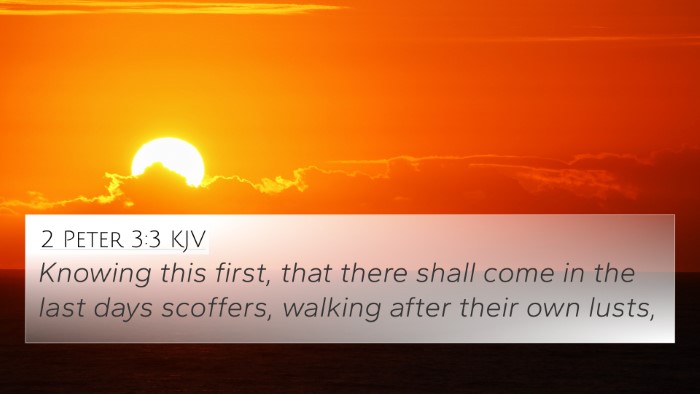
2 Peter 3:3 (KJV) »
Knowing this first, that there shall come in the last days scoffers, walking after their own lusts,
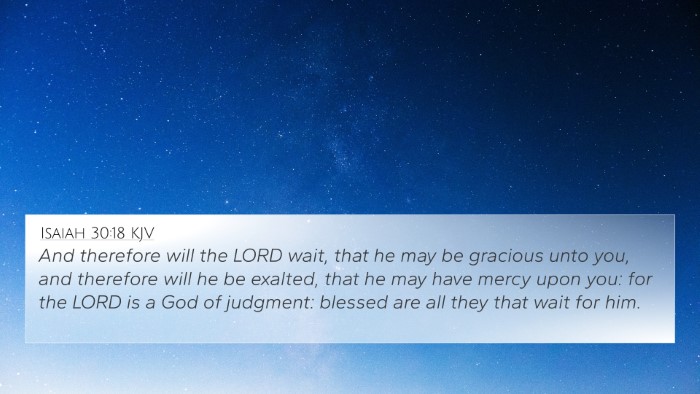
Isaiah 30:18 (KJV) »
And therefore will the LORD wait, that he may be gracious unto you, and therefore will he be exalted, that he may have mercy upon you: for the LORD is a God of judgment: blessed are all they that wait for him.
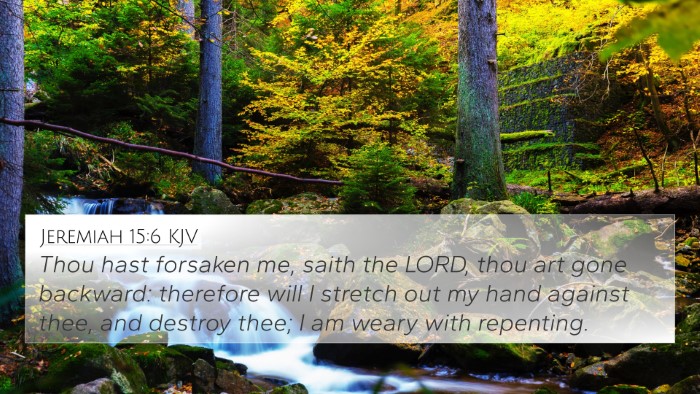
Jeremiah 15:6 (KJV) »
Thou hast forsaken me, saith the LORD, thou art gone backward: therefore will I stretch out my hand against thee, and destroy thee; I am weary with repenting.

Ezekiel 16:43 (KJV) »
Because thou hast not remembered the days of thy youth, but hast fretted me in all these things; behold, therefore I also will recompense thy way upon thine head, saith the Lord GOD: and thou shalt not commit this lewdness above all thine abominations.
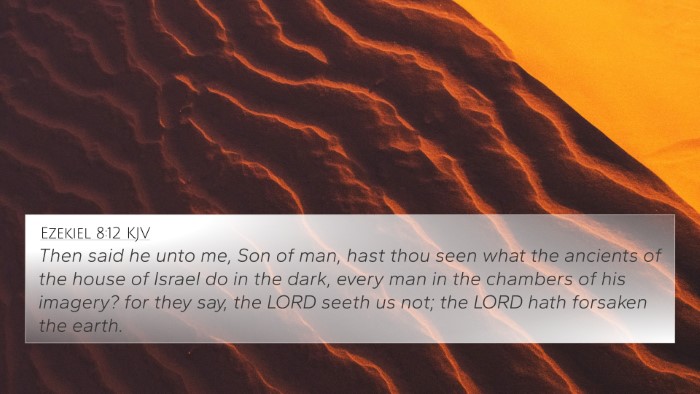
Ezekiel 8:12 (KJV) »
Then said he unto me, Son of man, hast thou seen what the ancients of the house of Israel do in the dark, every man in the chambers of his imagery? for they say, the LORD seeth us not; the LORD hath forsaken the earth.
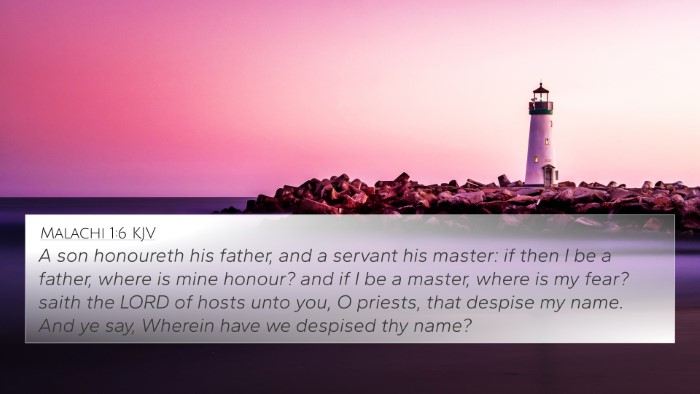
Malachi 1:6 (KJV) »
A son honoureth his father, and a servant his master: if then I be a father, where is mine honour? and if I be a master, where is my fear? saith the LORD of hosts unto you, O priests, that despise my name. And ye say, Wherein have we despised thy name?
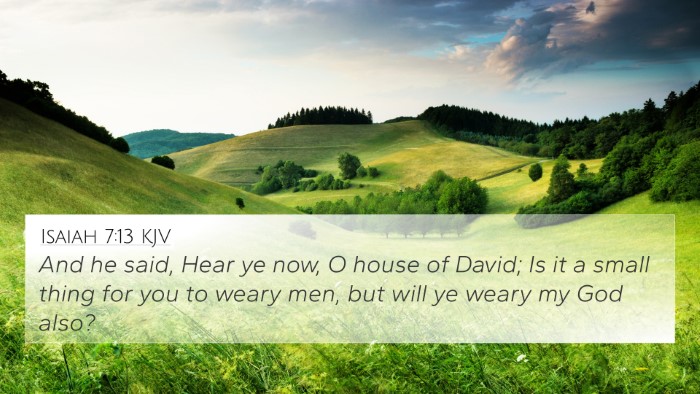
Isaiah 7:13 (KJV) »
And he said, Hear ye now, O house of David; Is it a small thing for you to weary men, but will ye weary my God also?
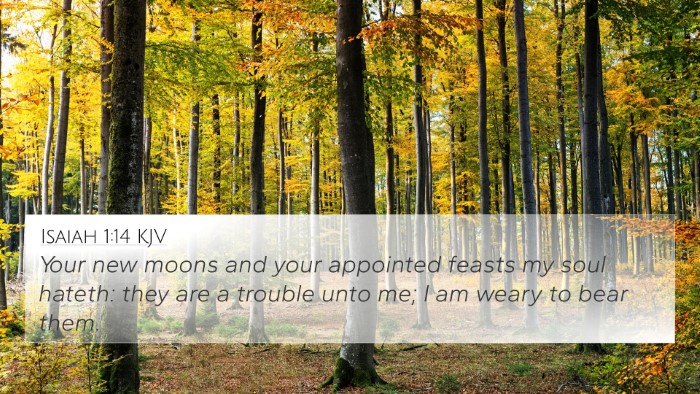
Isaiah 1:14 (KJV) »
Your new moons and your appointed feasts my soul hateth: they are a trouble unto me; I am weary to bear them.
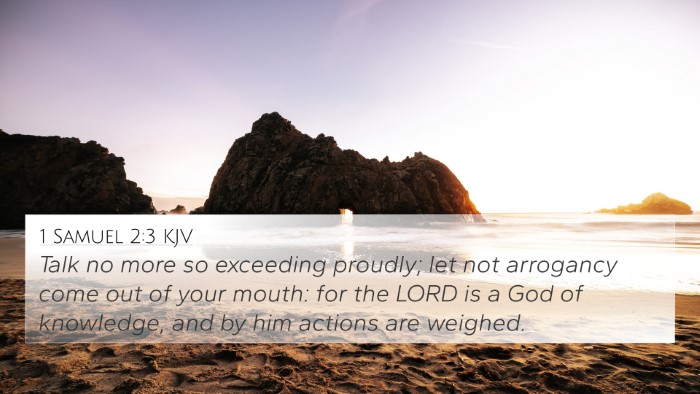
1 Samuel 2:3 (KJV) »
Talk no more so exceeding proudly; let not arrogancy come out of your mouth: for the LORD is a God of knowledge, and by him actions are weighed.
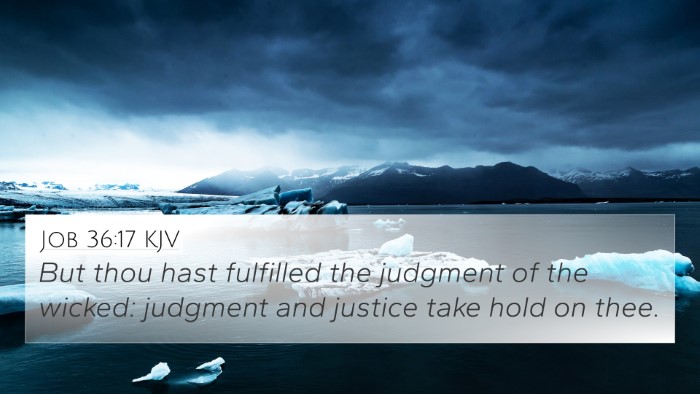
Job 36:17 (KJV) »
But thou hast fulfilled the judgment of the wicked: judgment and justice take hold on thee.
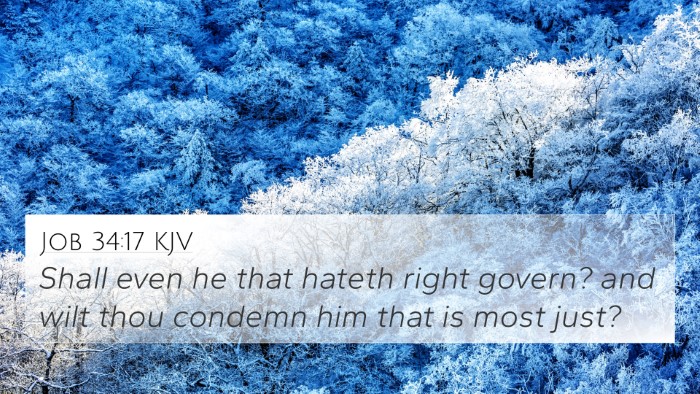
Job 34:17 (KJV) »
Shall even he that hateth right govern? and wilt thou condemn him that is most just?

Psalms 10:11 (KJV) »
He hath said in his heart, God hath forgotten: he hideth his face; he will never see it.
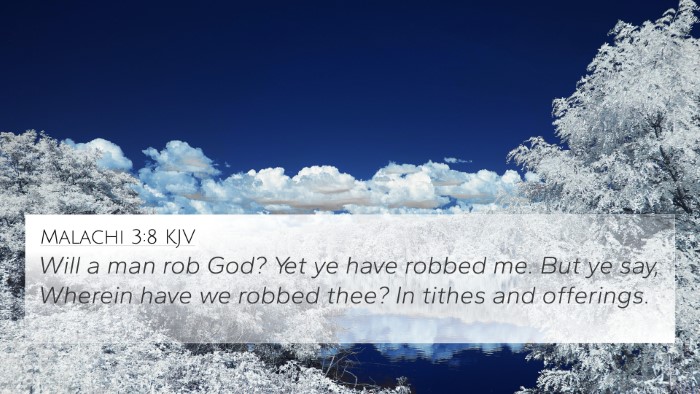
Malachi 3:8 (KJV) »
Will a man rob God? Yet ye have robbed me. But ye say, Wherein have we robbed thee? In tithes and offerings.
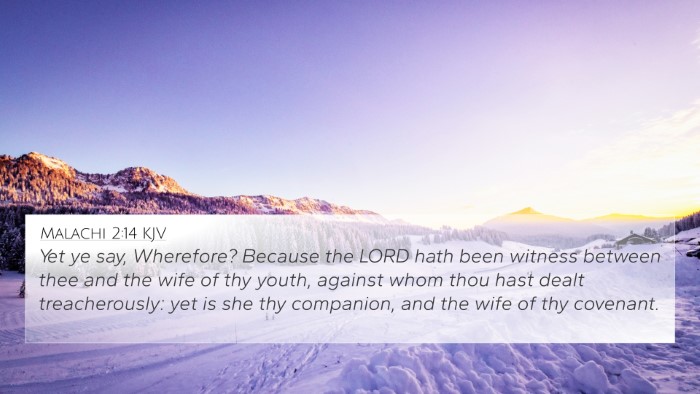
Malachi 2:14 (KJV) »
Yet ye say, Wherefore? Because the LORD hath been witness between thee and the wife of thy youth, against whom thou hast dealt treacherously: yet is she thy companion, and the wife of thy covenant.
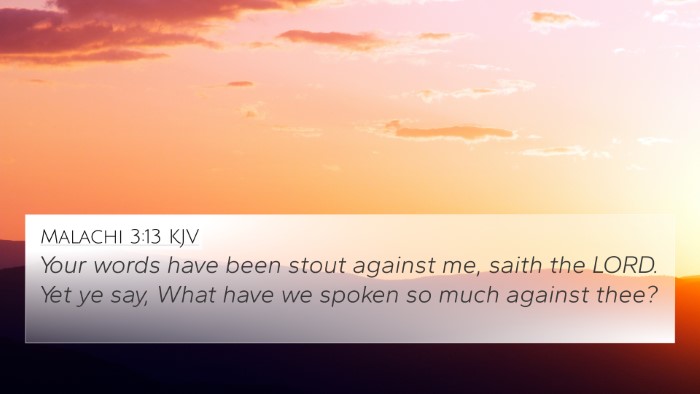
Malachi 3:13 (KJV) »
Your words have been stout against me, saith the LORD. Yet ye say, What have we spoken so much against thee?

Ezekiel 9:9 (KJV) »
Then said he unto me, The iniquity of the house of Israel and Judah is exceeding great, and the land is full of blood, and the city full of perverseness: for they say, The LORD hath forsaken the earth, and the LORD seeth not.
Malachi 2:17 Verse Analysis and Similar Verses
Malachi 2:17 reads: "Ye have wearied the LORD with your words. Yet ye say, Wherein have we wearied him? When ye say, Everyone that doeth evil is good in the sight of the LORD, and he delighteth in them; or, Where is the God of judgment?"
This verse highlights the spiritual apathy and insincerity of the people of Israel, who question the Lord's justice and express doubt about His displeasure with their actions. The verse serves as a powerful reminder of how our words and actions can either honor or grieve God.
Summary of Insights from Public Domain Commentaries:
- Matthew Henry: Henry emphasizes that the Israelites had grown weary of God, showing a complete misunderstanding of His character. They questioned His righteousness by calling evil good, which undermines His very nature as a just God. Henry points out that this reflects their moral decay and their need for repentance.
- Albert Barnes: Barnes interprets this verse as a warning against the complacency of God’s people. He suggests that the phrase "everyone that doeth evil is good" indicates that the people were justifying sinful behavior and challenging God's judgment. This reflects a society that had lost sight of divine moral law.
- Adam Clarke: Clarke notes that the phrase "where is the God of judgment?" reveals the people's doubt regarding God's justice in punishing evil. Clarke stresses that this skepticism leads them to question God's fidelity and righteousness, inviting a call to recognize His sovereignty and moral authority.
Meaning and Interpretation
This verse serves as a critique of the Israelites' attitudes towards sin and justice. They had become so accustomed to wickedness that they began to measure God's standards against their corrupted views. Each commentary highlights the relationship between human behavior and divine judgment, emphasizing:
- The disconnection between God's word and human interpretation.
- The danger of redefining good and evil according to personal or societal standards.
- The necessity of understanding God's holiness to comprehend His justice.
Related Bible Cross-References
- Isaiah 5:20: "Woe unto them that call evil good, and good evil..." - This verse directly parallels the accusation in Malachi, insisting on the importance of discerning righteousness.
- Jeremiah 5:30-31: "A wonderful and horrible thing is committed in the land..." - Reflects a similar theme of societal corruption and God's needed judgment.
- Romans 1:32: "Who knowing the judgment of God, that they which commit such things are worthy of death..." - A New Testament reinforcement of the moral implications of ignoring divine ordinances.
- Proverbs 17:15: "He that justifieth the wicked, and he that condemneth the just..." - Highlights the moral deception present in society, akin to that seen in Malachi.
- 2 Peter 2:1: "But there were false prophets also among the people..." - Further emphasizes the issue of leading others astray with falsehoods, resonating with the concerns of Malachi.
- Job 8:3: "Doth God pervert judgment? or doth the Almighty pervert justice?" - Job's questioning of God's justice parallels the doubts expressed in Malachi.
- Hebrews 10:31: "It is a fearful thing to fall into the hands of the living God." - A caution against disregarding God's judgment and authority.
Thematic Connections
Understanding Malachi 2:17 within the larger framework of scripture enhances our grasp of its implications:
- God's Sovereignty: This verse calls believers to acknowledge God's ultimate authority over moral standards.
- Divine Justice: Recognizing that God’s patience has limits reinforces the urgency of repentance and moral accountability.
- Covenant Relationship: The disappointment God expresses reflects a broader theme of covenant unfaithfulness seen throughout the books of the prophets.
Application for Today
In contemporary settings, believers are urged to assess their views and declarations regarding good and evil. It is vital to:
- Stand firm on Biblical teachings rather than societal trends.
- Engage in honest self-reflection to ensure that our words align with God's truth.
- Encourage discussion and reflection on God's moral laws to guide the community toward righteousness.
Conclusion
The inquiry embedded in Malachi 2:17 calls attention to mankind's tendency to reinterpret God's ways to fit personal convenience. Through the insights from public domain commentaries, we are reminded of the need for spiritual vigilance and authenticity in relationship with God. This verse serves as an essential catalyst for both personal reflection and community discourse, urging individuals to seek true understanding and obedience to God’s everlasting standards.
